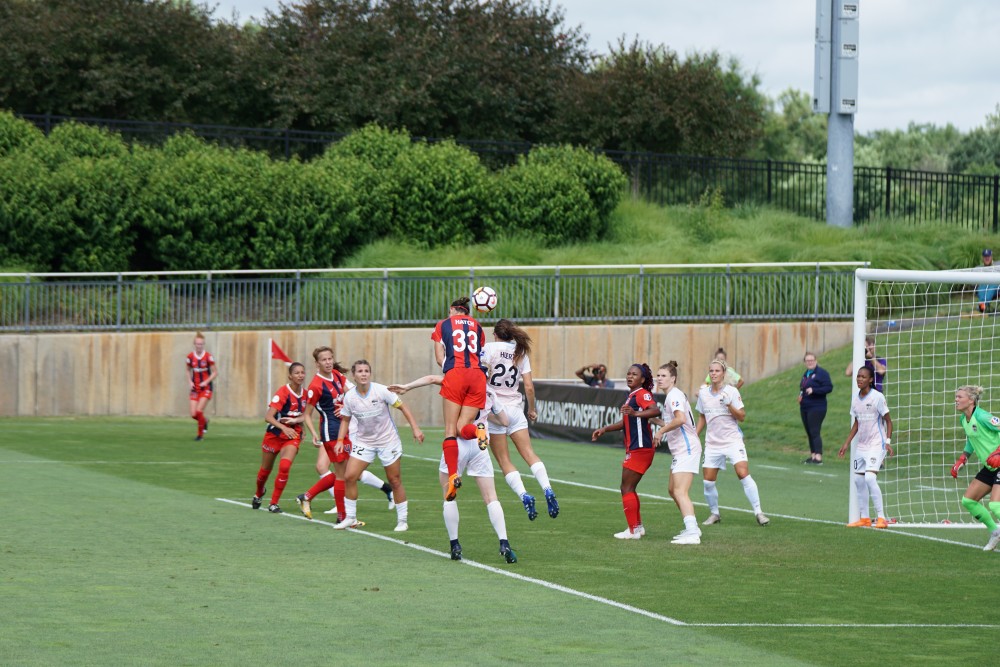Christian Athlete Circles provides alternative space in sports

Georgia McKee excelled at sports throughout childhood and played Division I college softball, which enabled her to know some of the nation’s best athletes. But she also encountered what she recognized as some of its most dysfunctional religious attitudes, practices, and personalities.
McKee, now a second-year student at Wake Forest University School of Divinity and an intern at the Baptist Joint Committee for Religious Liberty, said she and other athletes who identify as both Christian and LGBTQ know all too well the struggle of playing sports in a culture overshadowed by White evangelicalism.
Read our latest issue or browse back issues.
“The brand of Christianity that dominates all of sports promotes toxic masculinity, purity culture, transphobia, and homophobia. And it makes no room for wrestling with questions of faith,” said McKee, 22, who grew up Southern Baptist in Dallas and now attends an Alliance of Baptists church.
To help create an alternative space at all levels of sports, McKee has cofounded Christian Athlete Circles, a ministry designed to equip campus ministers, chaplains, and athletes to promote freedom of religion and conscience, build community, and strengthen mental and emotional well-being.
“We are an athlete ministry designed to accompany student-athletes as they explore and deepen their faith, make meaning of society, ritualize their joys and griefs, celebrate their belovedness, engage in activism, and create Beloved Community,” the ministry explains on its website.
With funding from the Episcopal Church, the organization plans to launch four pilot circles in the fall. They will include one each at Wake Forest University, Warren Wilson College near Asheville, North Carolina, and the University of North Carolina at Chapel Hill. The fourth will be hosted online for athletes regardless of location.
The ministry is openly affirming but not exclusively for LGBTQ people. That’s because LGBTQ athletes aren’t alone in needing refuge from far-right Christian theology and practices such as those endorsed by the US Supreme Court’s Kennedy v. Bremerton ruling in June, McKee explained. The Kennedy case affirmed a high school football coach’s right to conduct public prayer meetings on the 50-yard line immediately after games.
“As a Christian and someone who loves athletes and loves spiritual formation in athletes’ lives, it made me really sad to see that ruling in favor of someone who prays so openly on the 50-yard line—a coach, a government official—and making his way of believing the only way to believe,” McKee said. “I know what it’s like to be an athlete pressured by your coach. And no athlete is surprised by this case at all.”
Another goal of the circles is to demonstrate that many athletes, like others, yearn for deep spirituality and to practice faith regardless of sexual identity, she said.
“These athletes will often stay in toxic Christian environments because they crave community and belonging,” she reported. “But they are told not to bring out their queer identities, because they will not have a place at the table.”
“God created us as works of art, social location shapes us, and Jesus teaches us to love one another,” says a statement of core beliefs on the CAC website. “We seek to grow in our faith lives in exploring, wrestling, challenging, and being challenged by Scripture.”
CAC will not be engaged in “praying the gay away” or in the proselytizing approaches some athlete-oriented ministries practice, McKee said. “Others are more focused on salvation and conversion. That is not necessarily our focus.”
“This is a trauma-informed environment, where we care about mental health, we care about racial justice, and we care about radical belonging. It is a space where we are going to fully embrace you as you are,” she said.
Eventually, the goal is to become an interfaith ministry, she said. “One of our big visions in a decade or sooner is to have Muslim athlete circles, Jewish athlete circles, among others. We want to have that interfaith dialogue.”
But the makeup and practices of individual circles will be self-determined, she said. “We are not telling them how to lead and gather. That will be up to every team or athletic department. They can even be athlete led. This is more than just being Christians wanting to dominate the world of sports with Christianity. This is not putting our beliefs on top of everyone else’s, because that is not what Jesus wants us to do in spiritual formation and with communal prayer.”
McKee said her internship at BJC also is an expression of her calling to honor religious liberty and to create faith communities of belonging.
“I think religious freedom is being taken over by a certain narrative which isn’t what Baptists fought for in the early days, which is that everyone has the right to believe what they want to believe,” she stressed. —Baptist News Global






